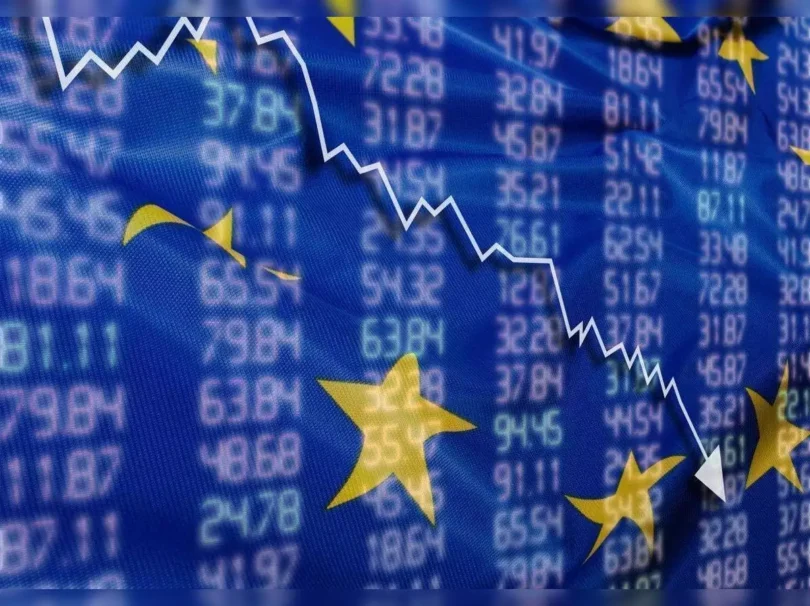In today’s fast-paced financial landscape, keeping an eye on stock market trends is more critical than ever, especially in Europe. The European stock market serves as a barometer for economic health and investor sentiment across the continent. With fluctuations influenced by various factors, understanding these trends can provide insights into potential investment opportunities and risks. In this article, we’ll explore current stock market trends in Europe, analyzing performance and the underlying factors driving these changes.
Understanding the European Stock Market Landscape
The Composition of the European Stock Market
The European stock market comprises various indices, including the FTSE 100 (UK), DAX 30 (Germany), CAC 40 (France), and the Euro Stoxx 50, which represents the largest companies in the eurozone. These indices serve as benchmarks for investors, reflecting the health of their respective economies. The diversity of industries represented—from finance to technology—offers a rich tapestry for investment.
ALSO SEE: Best guides on New Financial Technologies Gaining Traction in European Markets
Key Players in the Market
Investors in the European stock market range from institutional investors, like pension funds and insurance companies, to individual retail investors. Additionally, international investors play a significant role in market dynamics. The interplay between these players can significantly impact stock prices and overall market trends.
Current Performance of European Stock Markets
Recent Trends and Statistics
As of the latest data, European stock markets have shown a mixed performance. The DAX 30, for instance, has seen a steady rise of approximately 5% over the past quarter, driven largely by strong corporate earnings in the tech and industrial sectors. Conversely, the FTSE 100 has faced headwinds, with performance stagnating due to geopolitical tensions and rising inflation concerns.
Sector Analysis: Winners and Losers
Technology Sector Boom
The technology sector has emerged as a significant contributor to market growth. European tech companies, particularly those in software and AI, have shown robust earnings. This sector’s growth is driven by increased digital transformation across various industries.
Financial Sector Under Pressure
Conversely, the financial sector has experienced volatility, largely due to fluctuating interest rates and regulatory changes. Banks are navigating challenges related to loan defaults and tightening margins, which have affected stock performance.
Factors Influencing European Stock Market Trends
Economic Indicators and Their Impact
Economic indicators, such as GDP growth rates, unemployment rates, and consumer spending, play a crucial role in shaping investor sentiment. For instance, a recent uptick in GDP growth in Germany has bolstered confidence among investors, while concerns over inflation in Italy have caused fluctuations in stock prices.
Geopolitical Influences
Geopolitical factors, such as Brexit and tensions between Russia and Ukraine, significantly impact market performance. Uncertainty surrounding these issues often leads to increased market volatility, as investors weigh the potential implications for economic stability.
Central Bank Policies
The European Central Bank (ECB) plays a pivotal role in shaping market trends through its monetary policies. Recently, the ECB’s decision to maintain low interest rates to stimulate growth has buoyed investor sentiment, resulting in positive stock market reactions.
Technological Advancements and Market Performance
The Rise of Fintech in Europe
The fintech revolution is transforming the European financial landscape. Innovative companies offering solutions in digital banking, payments, and investment management are gaining traction. This growth in fintech not only enhances efficiency but also attracts investment into the broader stock market.
Impact of E-commerce on Retail Stocks
E-commerce growth has been a game-changer for retail stocks. Companies that have embraced online platforms have seen significant growth, while traditional brick-and-mortar retailers struggle. This shift in consumer behavior highlights the importance of adaptability in the market.
Investment Strategies in the Current European Stock Market
Value vs. Growth Investing
Investors are currently grappling with the age-old debate between value and growth investing. While value stocks, typically seen as undervalued, may offer stability, growth stocks present opportunities for substantial returns. Navigating these strategies depends on individual risk tolerance and investment goals.
The Role of Diversification
Diversification remains a key strategy in mitigating risks. By spreading investments across various sectors and geographical regions, investors can cushion their portfolios against market volatility. This strategy is particularly relevant given the mixed performance of European indices.
The Future of the European Stock Market
Predicting Future Trends
Looking ahead, several trends are likely to shape the European stock market. The continued rise of sustainable investing, driven by increasing awareness of environmental, social, and governance (ESG) factors, will impact investment decisions. Companies focusing on sustainability may enjoy enhanced investor interest and potential growth.
Challenges Ahead
However, challenges remain. The threat of recession in some European countries, coupled with ongoing geopolitical tensions, could pose risks to market stability. Investors must remain vigilant and adaptive to navigate these uncertainties.
Conclusion
The European stock market is currently navigating a complex landscape marked by diverse trends, economic indicators, and geopolitical influences. Understanding these dynamics is crucial for investors looking to make informed decisions. As we move forward, staying attuned to market shifts and emerging sectors will be vital for capitalizing on opportunities while managing risks.
FAQs
1. What are the main stock market indices in Europe?
The primary stock market indices include the FTSE 100 (UK), DAX 30 (Germany), CAC 40 (France), and Euro Stoxx 50, which represents major companies in the eurozone.
2. How does geopolitical tension affect the stock market?
Geopolitical tensions can lead to market volatility as investors react to uncertainty about economic stability and potential impacts on trade and investment.
3. What sectors are currently performing well in the European stock market?
The technology sector is performing well, driven by strong earnings in software and AI, while the financial sector faces challenges due to fluctuating interest rates.
4. How important is diversification in stock market investing?
Diversification is crucial as it helps mitigate risks by spreading investments across different sectors and geographical regions, protecting against market volatility.
5. What trends are likely to shape the future of the European stock market?
Sustainable investing and the rise of fintech are expected to shape future trends, along with challenges related to recession risks and geopolitical tensions.






